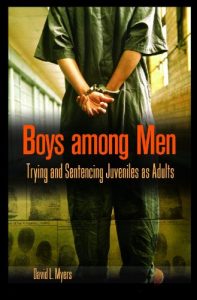 For most of us, Indians, our children don’t grow up; their mistakes, blunders, lie, even small or big offenses committed by them are invisible for us. Does managing parenting is a troubled task due to managing generation gap? In some households, Mum, Dad, Grandparents, Uncles, Aunts act as if they are their children’s ‘best friends’. They discuss openly about the whole world but when it concerns delicate issues, they feel uncomfortable and prefer to remain ‘mum.’ Our double standards and hypocrisies have no limits. At the heart of this argument lies a worrying question: When should an individual be treated as a grown-up?
For most of us, Indians, our children don’t grow up; their mistakes, blunders, lie, even small or big offenses committed by them are invisible for us. Does managing parenting is a troubled task due to managing generation gap? In some households, Mum, Dad, Grandparents, Uncles, Aunts act as if they are their children’s ‘best friends’. They discuss openly about the whole world but when it concerns delicate issues, they feel uncomfortable and prefer to remain ‘mum.’ Our double standards and hypocrisies have no limits. At the heart of this argument lies a worrying question: When should an individual be treated as a grown-up?
The Indian notion about when a child becomes an adult is very contradictory or inconsistent. The age of ‘major’ and ‘minor’ is defined by the law; but, at personal levels we define and re-define whatever suits us.
When a crime is committed, the minor is treated differently than a major would be. There are different imprisonment centers made for minors who commit severe crimes. These centers are named as juvenile detention centers. If we go by the logic that before attaining the age of 18, teenager have less understanding and knowledge about the world, are we ready to take sweeping risks of crimes created by them? And so, are parents, teachers, friends, and people in surrounding equally responsible for the crime committed by juvenile? And is this why court don’t treat and punish the teenagers same as they do with adults for the same crime. The law for juvenile delinquency is inadequate to deal with the situation. This has been a reason for growing antipathy and even frustration in civil society.
for minors who commit severe crimes. These centers are named as juvenile detention centers. If we go by the logic that before attaining the age of 18, teenager have less understanding and knowledge about the world, are we ready to take sweeping risks of crimes created by them? And so, are parents, teachers, friends, and people in surrounding equally responsible for the crime committed by juvenile? And is this why court don’t treat and punish the teenagers same as they do with adults for the same crime. The law for juvenile delinquency is inadequate to deal with the situation. This has been a reason for growing antipathy and even frustration in civil society.
We have been witnessing the so-called under-aged citizens committing grave crimes – rapes, murders, shooting, robbing, butchering; drinking and driving, thus killing innocent people on roads, the list is big. What is also worrisome is that due to increased information flow through print, electronic and social media, a word has spread that those under 18 are not tried under the normal laws and can literally get away with rapes and murders. In India, about 1.5 to 2 per cent of the total crimes are committed by juveniles while the population of children below 18 years is 42 per cent of the total population. Therefore, the crime committed by juvenile is much on the higher side. Open the newspaper on any day, and you will read at least two news items of under-aged children committing crime.
 The juvenile crime needs immediate solutions. In the heinous gang rape of Nirbhaya in Delhi, in December 2012, an under-aged boy was involved in torturing the victim very badly. Almost the entire nation was frustrated that the so called under-aged boy should be tried separately and be given a milder treatment. Police sources say that the teenager raped the victim (who was a medical student) twice, once when she was unconscious. Amid demand, that a juvenile be defined as a person below 16 years and not 18, Delhi’s Lieutenant Governor Najeeb Jung suggested the law could be changed to lower that to even 14. Young people, he said, grow up faster these days. But, the young, below 18, guilty lad in this case is sent to a correctional home by the Juvenile Justice Board for three years. Does this make sense? And with all the correctional measures what is the guarantee that such crass, insensate criminals will ever change?
The juvenile crime needs immediate solutions. In the heinous gang rape of Nirbhaya in Delhi, in December 2012, an under-aged boy was involved in torturing the victim very badly. Almost the entire nation was frustrated that the so called under-aged boy should be tried separately and be given a milder treatment. Police sources say that the teenager raped the victim (who was a medical student) twice, once when she was unconscious. Amid demand, that a juvenile be defined as a person below 16 years and not 18, Delhi’s Lieutenant Governor Najeeb Jung suggested the law could be changed to lower that to even 14. Young people, he said, grow up faster these days. But, the young, below 18, guilty lad in this case is sent to a correctional home by the Juvenile Justice Board for three years. Does this make sense? And with all the correctional measures what is the guarantee that such crass, insensate criminals will ever change?
In Mumbai in the Shakti Mills rape case, the two juveniles are yet to be tried. There are umpteen cases to describe the intensity of this subject.
The states in our country have agreed that it is time to reduce the age limit for juveniles from 18 to 16, meaning that anyone older than 16 should be treated and punished as an adult. But this move is unlikely to be cleared by the Union Cabinet as the government is a signatory to the United Nations Convention on Child Rights which states that anyone below the age of 18 years is a juvenile.
than 16 should be treated and punished as an adult. But this move is unlikely to be cleared by the Union Cabinet as the government is a signatory to the United Nations Convention on Child Rights which states that anyone below the age of 18 years is a juvenile.
Should juvenile offenders be tried and punished as adults? The answer is definitely yes, for while committing the crime they knew what they were doing; they should be punished like an adult if they commit “adult” crimes. There can be no justification like faulty nurturing, childhood incidents, wrong company, and influence of bad surrounding or influence of bad parenting; for whatever reasons a youngster has turned a criminal, why should an innocent victim suffer?
 Many children commit crimes knowing well that they’ll receive a lighter punishment for being a minor. Therefore, more and more minors should be tried as adults to make them realize that they will face a severe punishment for their actions. I think that the words of Agatha Christi are full of wisdom “too much mercy ………often resulted in further crimes which were fatal to innocent victims who need not have been victims if justice would have been put first and mercy second”.
Many children commit crimes knowing well that they’ll receive a lighter punishment for being a minor. Therefore, more and more minors should be tried as adults to make them realize that they will face a severe punishment for their actions. I think that the words of Agatha Christi are full of wisdom “too much mercy ………often resulted in further crimes which were fatal to innocent victims who need not have been victims if justice would have been put first and mercy second”.













































